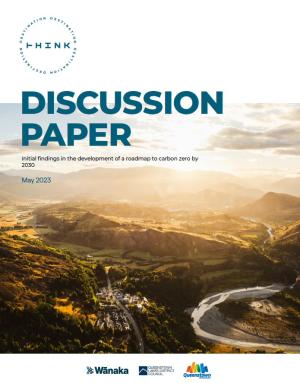Objective: reach a carbon zero visitor economy by 2030
Description
This keystone project is the effort to decarbonise the visitor economy of Queenstown Lakes by 2030. Partners and tourism businesses will collaborate in planning and implementing pathways to reaching carbon zero. This project needs to align with and supercharge the Spatial Plan, the Climate and Biodiversity plan and QLDC transport plan, and it needs to support the district’s growing capacity for renewable energy. It is ambitious.
To be successful, a systems approach is needed, supported by several types of funding, including private capital, non-dilutive funding (public finance, grants and philanthropy) and access to debt or equity finance. Many cost savings and other benefits are anticipated. The community is not expected to do this without support. The many sub-projects under Project 9 must be visible and collaborative, building momentum and regularly communicating the benefits
Inputs, actions and thought starters
- Take responsibility for addressing the transportation emissions (Scope 3) that bring visitors and supplies to Queenstown Lakes.
- Decarbonise the built environment (hotels, restaurants, airport, meeting spaces, etc.) including improving energy efficiency.
- Decarbonise emissions associated with visitor experiences, hospitality and attractions.
- Identify system-wide initiatives that will increase the length of visitor stays, while reducing their emissions profile.
- Reduce polluting emissions from road vehicles and relieve traffic congestion by improving infrastructure and changing traveller behaviour
- Ensure support for businesses to make the transition, similar to the New Zealand Farm Assurance Programme Plus (NZFAP Plus).
- Consider incorporating a price on carbon or advocating for national carbon pricing to reduce complexity and increase adoption and or other high-leverage points.
- Secure funding to implement all of the above activities and any others that move the district toward decarbonisation. This plan is ambitious, and to be successful it will take all types of funding; private, public, access to debt finance, non-dilutive public capital, and philanthropy
Progress to date
Following the widespread support received during the socialisation of the carbon zero by 2030 goal as Travel to a thriving futures' keystone project, work commenced starting to progress on how to bring this ambitious goal into reality. Lead by Destination Think in collaboration with the Destination Management Group (DMG) and industry experts and advisors a Discussion Paper has been released.
Progress made includes:
- Over 50 initial interviews with representatives and community leaders from visitor economy industry, carbon experts, scientific advisors, policy advisors, and national and local government.
- Ideation workshop held in February 2023
- Discussion Paper completed. This paper presents research and analysis on the current state of emissions attributable to the Queenstown Lakes visitor economy that will influence the creation of a roadmap to guide decarbonisation across the region. The paper invites feedback on decarbonisation initiatives, methodology, findings, and further solutions.
- Identification recommendations to progress the journey to a carbon zero visitor economy
Project leads
- Destination Management Group (Lake Wānaka Tourism, Destination Queenstown, Queenstown Lakes District Council)
- Destination Think
How to get involved
- Read the Discussion Paper
- Provide feedback on decarbonisation initiatives, methodology, findings, and further solutions
Alternatively, reach out to the team through the contact us form.
Queenstown Lakes' Carbon Zero Discussion Paper
This paper presents research and analysis that will influence the creation of a roadmap to guide decarbonisation across the region. The paper invites feedback on decarbonisation initiatives, methodology, findings and further solutions.
Follow the journey
Sign up to stay up to date on the Queenstown Lakes' journey to becoming a regenerative tourism destination and carbon zero by 2030.

